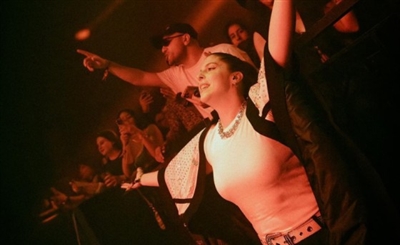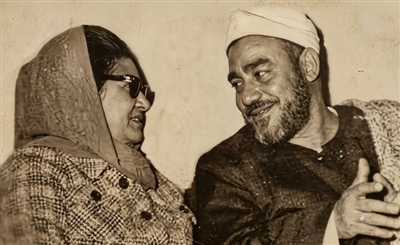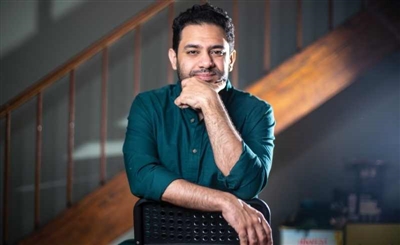A Post-Corona Egypt: What Comes Next for the Music 'Scene'?
Yaseen El Azzouni reflects on the state of the music scene in Egypt, what it might look like in a post-Corona world and what it needs to avoid falling into the same trappings.

I often hear people describe the ‘scene’ in Egypt as if it’s one large, amorphous entity: unified in genre and encompassing one singular set of intentions, goals and ideas. The reality is that there are many forces at play, each attempting to tug the culture — and industry — in different directions. At its most basic level, the scene in Egypt is probably most easily described as a dynamic network of connections between artists, venues, promoters and crowds – the same of which could be said for virtually any ‘scene’ around the world.
Speaking with
members of this informal community over the past few years, I’ve found that,
while many have their own unique visions for how things should progress, a
number of commonly-held (though often publicly-unshared) sentiments and
concerns deserve further expression. While it’s not always easy to talk about
some of these ideas for change candidly (and many individuals I’ve spoken to
have expressed a hesitancy to voice these opinions outwardly), we might all
take this unique moment of global *pause* to think a bit more deeply about
where we’re headed as an industry.
The current
global shutdown could have a number of long-lasting repercussions that require preemptive consideration for many of the music ‘scenes’ of the developing
world. In Egypt, international travel (already a luxury for many) may continue
to become even more restricted in the future. This will mean two things: on the
one hand, local artists will experience even more limitations travelling
abroad, as countries across Europe and North America have already begun
restricting visas (and this is likely just the beginning of this trend). On the
other hand, the usual influx of foreign artists will likely decrease due to
inflated (not without a basis in truth, but nevertheless inflated) concerns
regarding lower-health standards and higher risk factors commonly associated
with visiting Middle Eastern and African countries. Together, these
considerations will leave artists in countries like Egypt altogether more
isolated than ever before.
Current forecasts suggest that the world might experience this limbo state for the next two years, but it’s important to think about the nearer future.
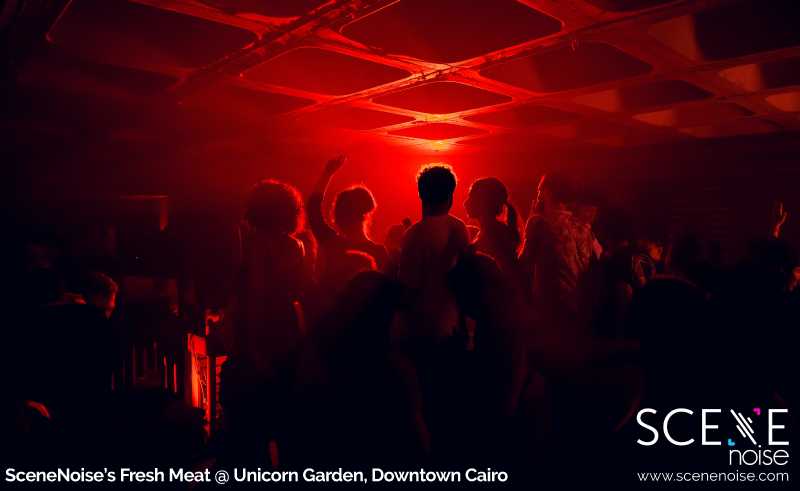
Self-sufficiency will be integral in this next phase. Egypt’s music scene needs to be able to survive without the level of support from foreign countries it once received. Even if the world does return to the status quo, this time of reflection can still offer a valuable introspective opportunity to analyse some of the underlying issues with our current industry and re-evaluate our relationship with locally-produced art, which is often hierarchically undervalued in comparison to its international counterpart. For now, an ever-increasing list of bigger and more popular international bookings is no longer a viable benchmark for growth in Egypt’s music scene.
The reality
is that we, as a country, have valued (and priced) Egyptian art at far less
than imported art. Foreign artists - and the promoters who book them - are able
to charge hugely inflated ticket prices and make some truly insane amounts of
money, while local artists charging reasonable fees struggle to fill venues or
break even.
This is the
case in many countries like Egypt, where remnants of a colonial mentality have
conditioned us to believe that foreign/imported goods (including music) are of
inherently higher quality and desirability than anything locally produced. This
has manifested in an unfortunate environment in which the Egyptian market is
far more excited by, and far more willing to spend money on, imported arts. In
brief, it is simply more profitable to book a foreigner than it is to book a
local for the same show.
To be sure:
this isn’t the fault of promoters. People in the Middle-East should be able to
see their favourite foreign musicians live, often for the first time. They
deserve it after so many years in which foreign acts repeatedly dismissed
Middle Eastern markets as insignificant. There is incredible value in that, and
I deeply respect the promoters who are able to make this possible. More often
than not, foreign artists charge incredibly high booking costs, and so it makes
sense that the tickets would be expensive too. A lot of effort and planning
goes into successfully organising a large-scale booking, and promoters should
be compensated accordingly.
That being said, Terre Thaemlitz’s (a.k.a DJ Sprinkles) concept of ‘audio imperialism’ is interesting to consider here. As they discussed in a VICE interview in 2015: “There is definitely a group of Western DJs that I consider ‘audio imperialists’, in that they will take gigs anywhere, be treated to finances and comforts that are unknown to most inhabitants of a region, and then return home to talk about how amazing things are in impoverished lands.”
These international artists invariably end up getting paid substantially more than local artists on the same line-up. Promoters get paid as well, through inflated pricing strategies, and very little of the money ends up being invested in making the scene itself more sustainable, instead going mostly towards the next big booking. For visiting foreigners, this luxury impression of an idealised country does not often manage to convey the complex reality of the local music scene and instead reduces Egypt to merely another ‘stop’ on tour and another quick pay check.
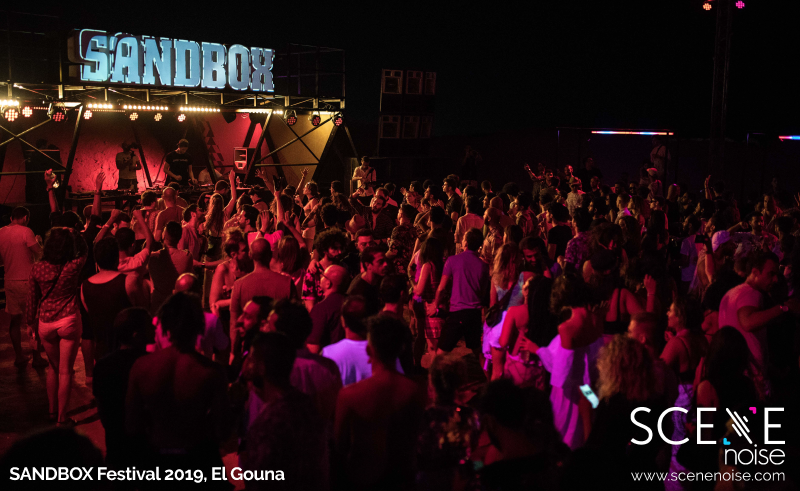
Any local artists hoping for a chance to impress local crowds or tourists are often relegated to ‘warm up’ sets, leaving the more “serious’ hours for the presumably much more accomplished visiting acts. When we show our own people that the headlining spot is solely reserved for foreigners, we’re ultimately perpetuating an assumption that our own talent is simply not good enough, or deserving of the same treatment.
This inequity has not gone unnoticed: “It seemed a pity that none of the Egyptian acts were given a later spot, particularly when live performances from Hassan Abou Alam and The Meteors Project were as accomplished as anything that the European acts had to offer,” one Resident Advisor reviewer said of the 2016 edition of SANDBOX Festival.
The idea of
music as entertainment, as something ‘cool’ to do on the weekend, has become a
valuable commodity in Egypt. Among both younger and older generations, there is
a strong desire now, even more so than in previous years, to go out, listen to
music and dance. This desire is likely to still exist, if not even increase,
after the current shutdown. The money is there, as is the desire to spend it.
The market exists, but we have a responsibility to dispel the notion that the
only exciting thing happening in our local music scenes is when someone from
abroad comes to visit, and the perception that if an event isn’t a polished,
luxury experience, then it isn’t worth spending on.
I’m not just
talking about band nights, club nights, or the occasional rap show. This isn’t
about genre. What Cairo-based venue, VENT, proved in 2013 was that nightlife
can function as a permanent fixture, rather than as an occasion. It’s a public
service, one that people will want more than ever when quarantine is finally
over.
Most people
actually willing to spend money on night-time entertainment are often made up
of those who see live music as a safe space to socialise and cut loose. Not
everyone needs to be as ‘into’ artistry as the artists themselves to
participate in this space. Instead of judging or critiquing the way some
Egyptians relate to music, those of us who are involved more directly in the
internal dynamics of the music scene should be actively trying to create a more
supportive space where individuals on the ‘fringe’ (a somewhat-ironic use of
the term here because they often make up the vast majority of audiences) are
able to become more involved and more invested in the success of local
artists.
While the
existence of electronic music in Egypt is by no means a new phenomenon (check
out Halim El Dabh’s music, if you haven’t already), what arguably is quite new
are the specific ways in which the industry as a whole is beginning to grow and
develop. Instead of allowing this opportunity to stagnate by perpetuating an
artistic hierarchy in which few have a voice, in which the same line-ups are
seen again and again, and in which we continue looking outwards to foreign acts
to inject new life into the musical landscape. What we need to do instead is
open up more spaces for criticism and debate, for different public voices to be
heard (both on stage and in conversation) and for the creation of innovative
music within a dynamic and progressive music scene.
“If the only
thing available is these old institutions where nothing new can get out -- it
ends up just being people doing stuff alone in their bedrooms, and feeling
alone. There’s no sense of community.” - Abass El-Hage of HIZZ, WIRED.
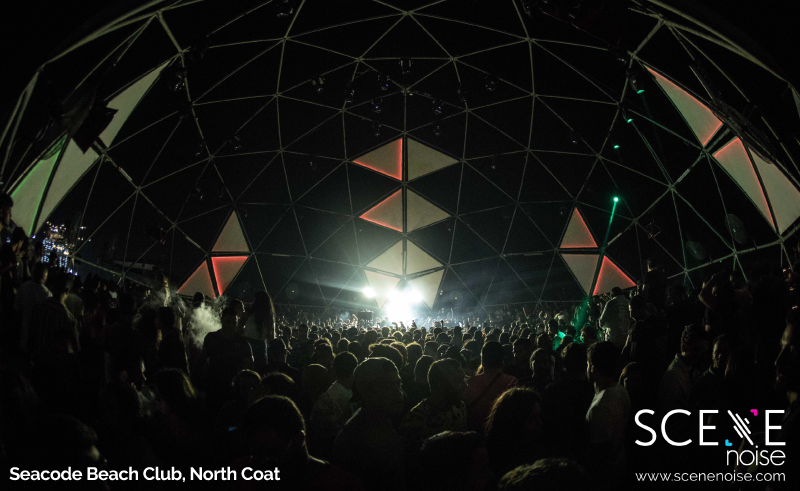
Egypt’s music electronic community is still in its relative infancy, which means that there are often only a few degrees of separation between people. Word travels fast and there’s a very real sense of apprehension that a wrong comment made publicly might cause irreparable damage to one’s career. Because of these fears, the kind of critical conversations that should be happening at a public level aren’t happening at anywhere near the frequency they need to be to engender real evolution at an industry-level.
The problem
isn’t the criticism itself, but rather its reception. What needs to change here
is a matter of perception. There doesn’t need to be a single
all-encompassing/monolithic way for the scene to develop either. Differences,
developments and divergences should be both allowed and encouraged. A critique
of the scene and its operations shouldn’t be interpreted as a personal
indictment or a call to arms for a complete overhaul, but rather the simple act
of opening up a space for analysis, introspection and meaningful
improvement.
Some
self-reflective honesty is required for this next part. The ‘dream’ for many of
Egypt’s contemporary artists is one of escape: to be recognised by the (much
more established) arts infrastructure of Europe or North America and to be
invited - by legalised means of a visa - to create and perform art in an
arguably much more welcoming landscape.
This foreign
receptiveness often exceeds local demand for the same art, and it’s not hard to
see the appeal of cities like Berlin, New York or London as places to pursue a
career in the arts. With countless venues, galleries and spaces facilitating a greater
acceptance of experimentation and the avant-garde, as well as high demand for
fresh international talent, this certainly appears like much more fertile
ground to invest in.
This desire
for escape isn't a fault on the part of Egypt’s artists themselves. If we
continue to work towards creating a more accepting and engaging environment for
new and emerging talent, perhaps fewer artists will be as desperate to leave.
Otherwise (and this would be a great shame), we might as well sit back, relax,
and watch this cultural brain-drain play out, one artist at a time.
I mean this sincerely: some of the most forward-thinking music being made right now is coming from Egypt and the Middle East, and the western market is certainly starting to notice. Demand for art from the Middle East and Africa has skyrocketed in recent years. Cairo-born artists like Aya Metwalli have received acclaim beyond the bounds of the region. ZULI’s records are sold out everywhere - and on any given club night in New York or London it’s impossible not to hear the influence of Middle Eastern-produced rhythms and textures on contemporary music. Getting out to these spaces in person, however, is simply an impossibility for many of our most talented artists. Be it by way of xenophobic travel or immigration policies, or due to financial difficulty, the result is that those who are able to make it out are few and far between, despite the acclaim.
Perhaps then (and this is a far from radical thought, although it warrants reiteration) we might choose to take off the blinders of Western glorification and instead look closer to home at the electronic scenes in Egypt, the Middle East and Africa as a whole. When the current shutdown officially lifts, and people start to fill the streets again, there’s going to be a huge demand for art and entertainment.
We might take some time over the next few months to rethink the ethical foundations of what we build next. Do we want to continue reinforcing artistic hierarchies, marginalising newcomers and championing the foreign over the local? Or do we want to work towards creating something dynamic and sustainable that finally brings domestic talent to the limelight?
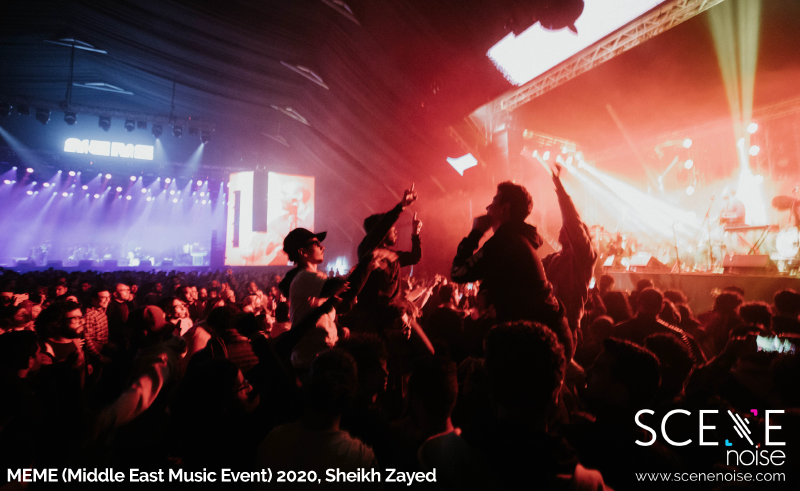
Before even thinking about bringing American or European art back to Egypt, we need to first consciously consider our relationship with our neighbours in the Middle East and Africa, and start repairing the cultural ties that have long been neglected. We need to encourage the flow of art between our nations, rather than allowing it to be exported to the west as a novelty. Almost every country in Africa and the Middle East has a burgeoning electronic ‘scene’, not unlike Egypt’s. If linked together, we could have a circuit that rivals those of Europe and North America.
If we should
feel anything towards our local scenes, it should be excitement. We are sitting
on a gold-mine of art, and with the right support it will find the recognition
it deserves.
“I feel like,
especially in Cairo, the sound is very avant-garde. And I mean for anywhere.
It’s not like, ‘Oh, this is cute… for the Middle East.’ The music and the
producers coming out of Cairo—even if some of them are based elsewhere now—are
some of the most cutting-edge. They’re really pushing things, because they
don’t have any expectation that anybody’s going to care or that anything’s
going to happen.” Abass El-Hage, WIRED.
As with all
things, I believe that the development of our culture, our ‘scene’, should be a
conversation. I encourage anyone with thoughts and feelings on this topic to
reach out to me with any perspective they might have to share.
Email:
yaseen@scenenoise.com
The article is intended as a reflection on the current state of Egypt’s electronic music scene, informed both by my personal experiences as participant and observer, and by conversations with its past and present members.
Some further
readings that inspired this article:
- Scenius, or Communal Genius. The Technium (2008)
- The DIY music collective that’s turning up the noise in Cairo, Leena Khalil. WIRED Magazine (January 2020)
Trending This Month
-
Feb 20, 2026



